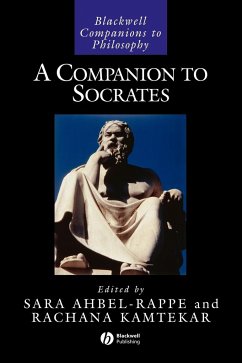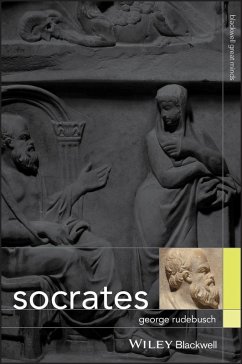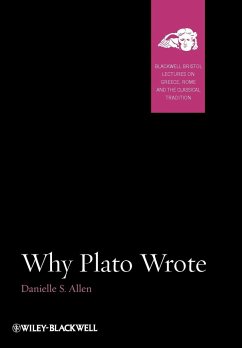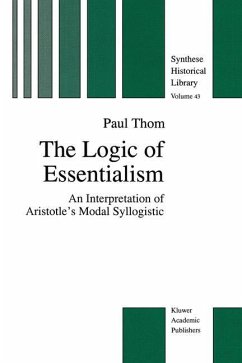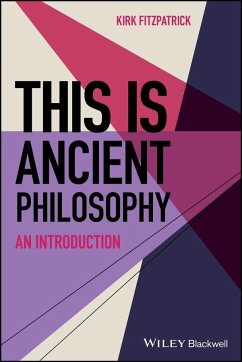
Ancient Philosophy
Essential Readings with Commentary
Herausgeber: Smith, Nick; Vaidya, Anand Jayprakash; Allhoff, Fritz
Versandkostenfrei!
Versandfertig in über 4 Wochen
120,99 €
inkl. MwSt.

PAYBACK Punkte
60 °P sammeln!
The progression of philosophy in ancient Greece spans an extensive and complex period in history. Between 600 BCE and 600 CE the foundations of philosophy as we know it were laid, establishing the central areas of philosophical concern, and creating an agenda for future study and debate. This thorough introduction to ancient philosophy: * Focuses on the key philosophers and their texts, from Pre-Socratic thinkers through to the Neo-Platonists * Brings together the key primary writings of Thales, Xenophanes, Parmenides, Anaxagoras, Gorgias, Plato, Aristotle, Epicurus, Lucretius, Seneca, Sextus ...
The progression of philosophy in ancient Greece spans an extensive and complex period in history. Between 600 BCE and 600 CE the foundations of philosophy as we know it were laid, establishing the central areas of philosophical concern, and creating an agenda for future study and debate. This thorough introduction to ancient philosophy: * Focuses on the key philosophers and their texts, from Pre-Socratic thinkers through to the Neo-Platonists * Brings together the key primary writings of Thales, Xenophanes, Parmenides, Anaxagoras, Gorgias, Plato, Aristotle, Epicurus, Lucretius, Seneca, Sextus Empiricus, Plotinus, and many others * Is broken down into eight chronological sections for easy comprehension and comparison The readings are accompanied by expert commentary from the editors.



